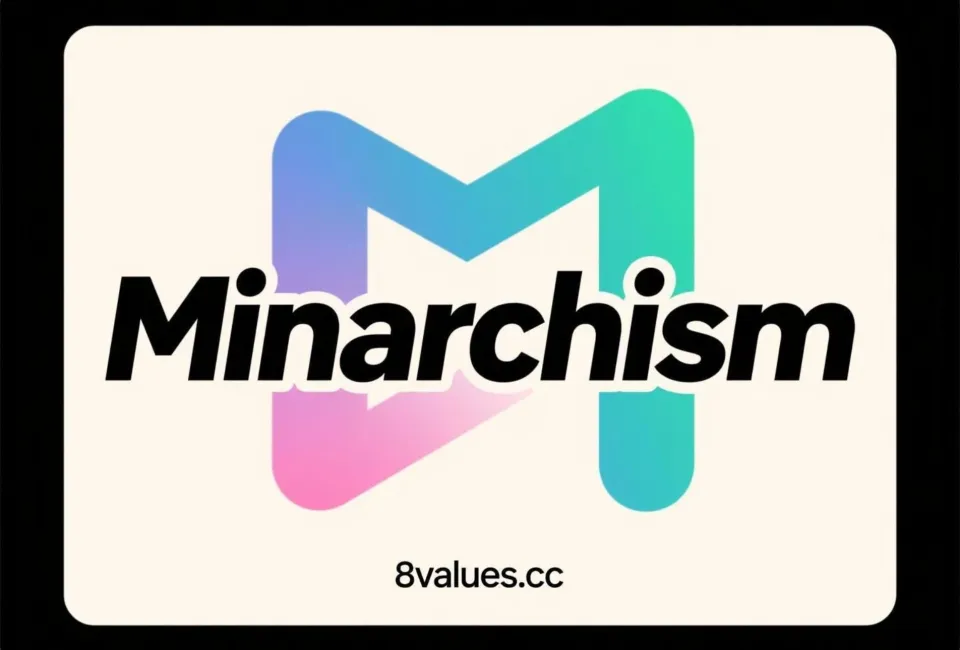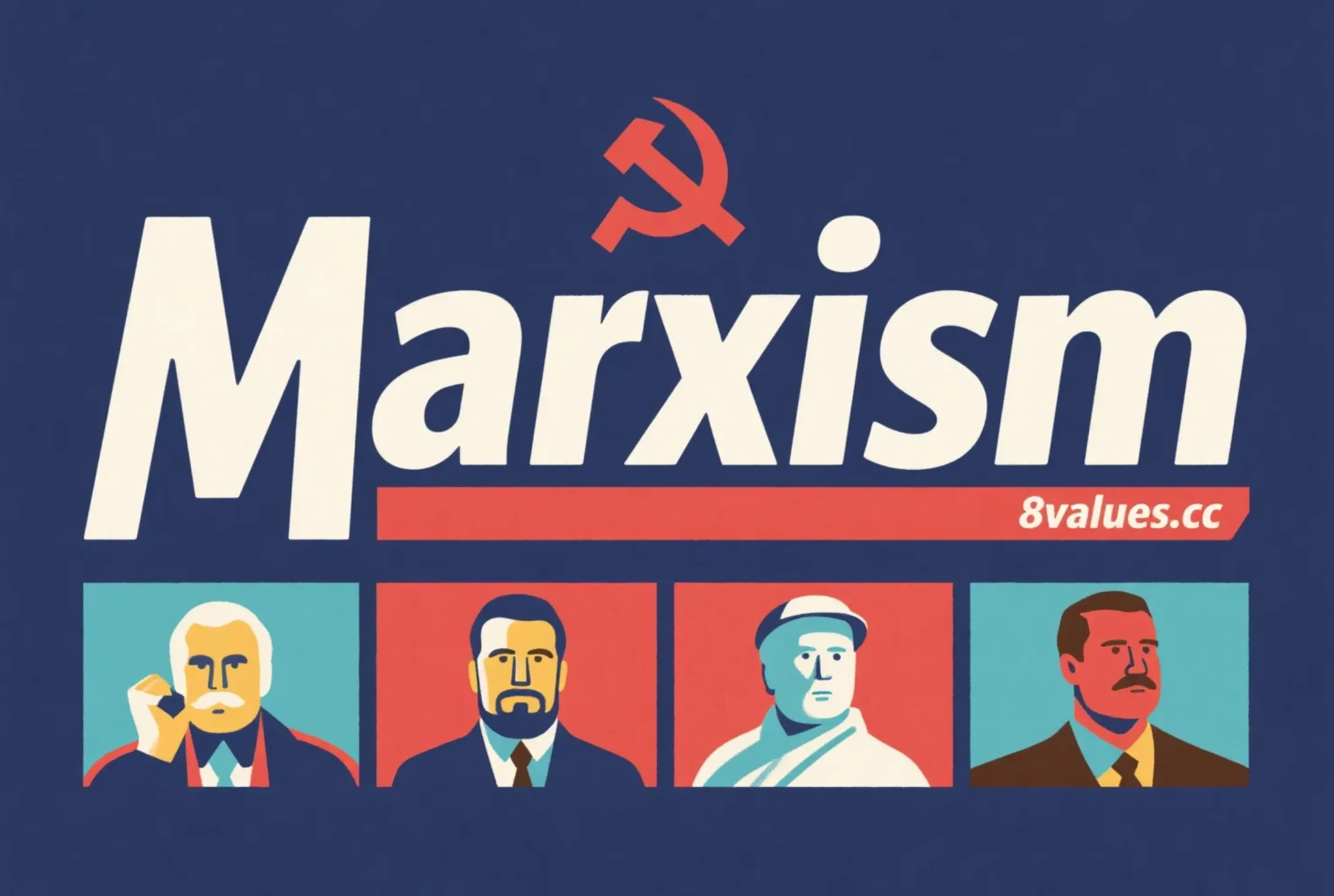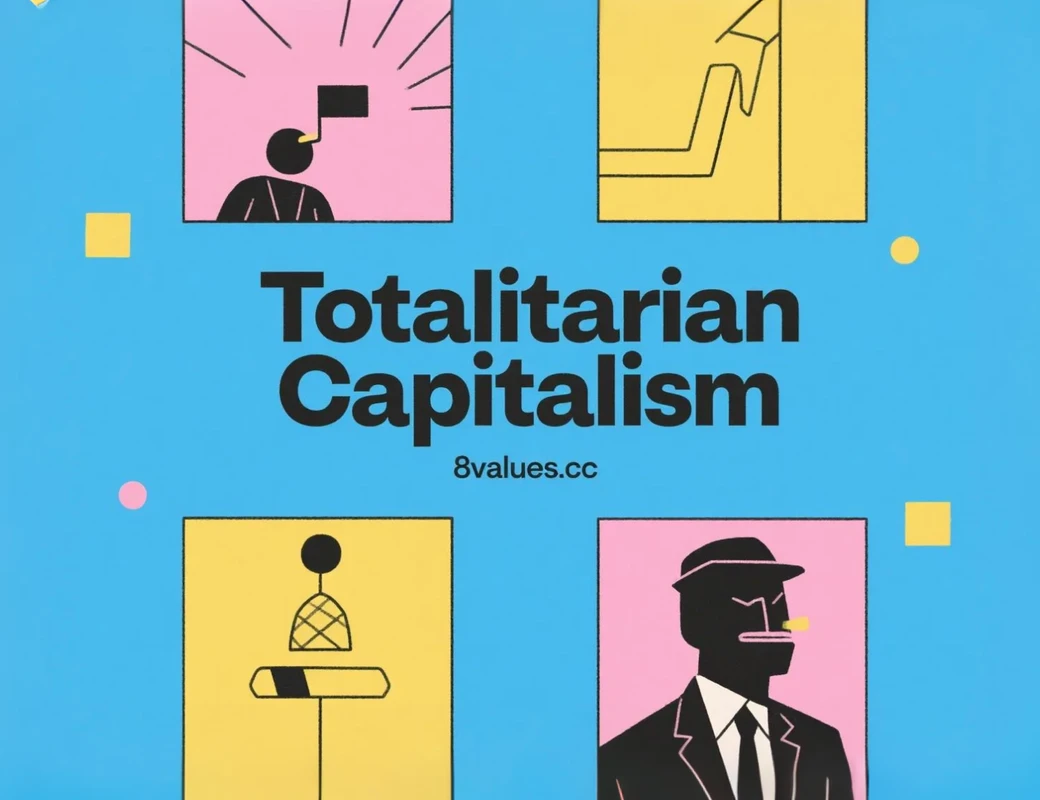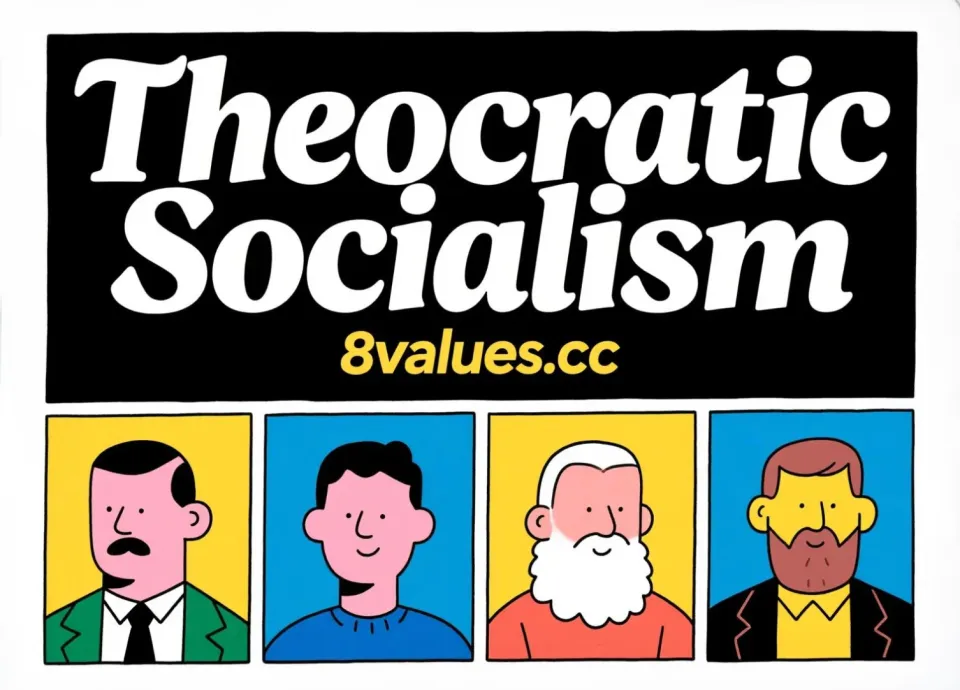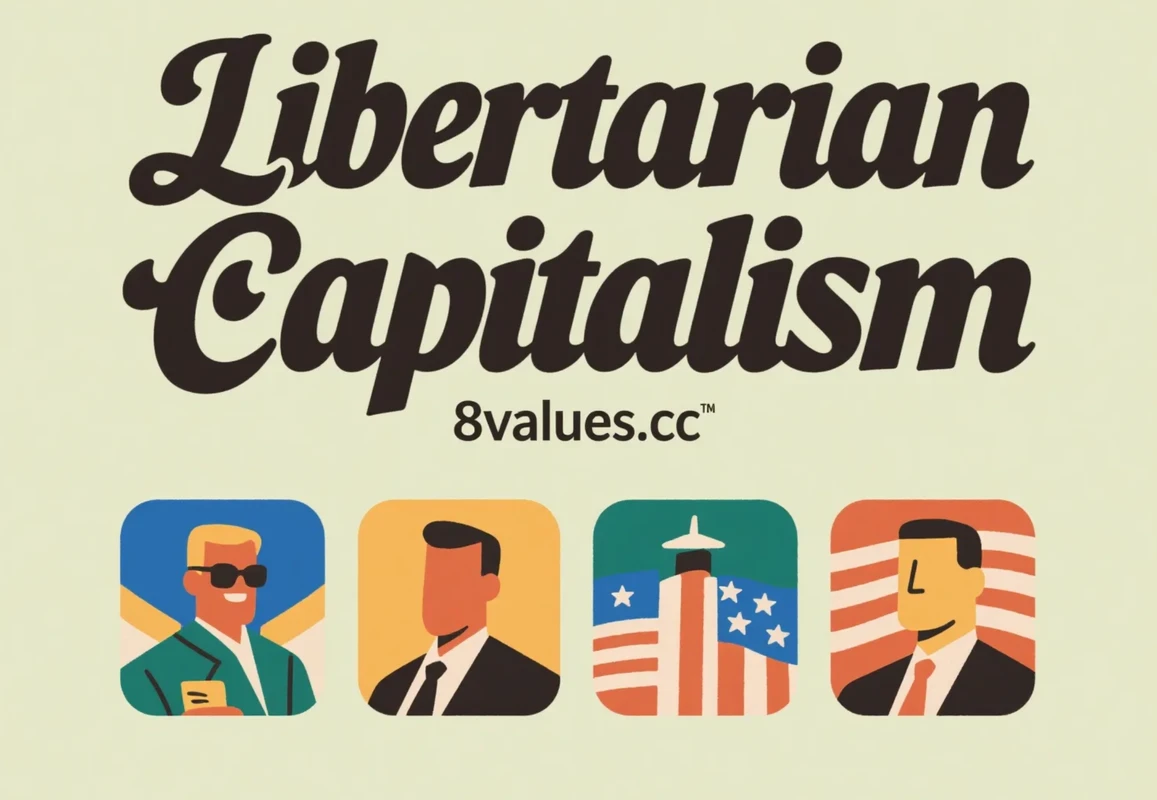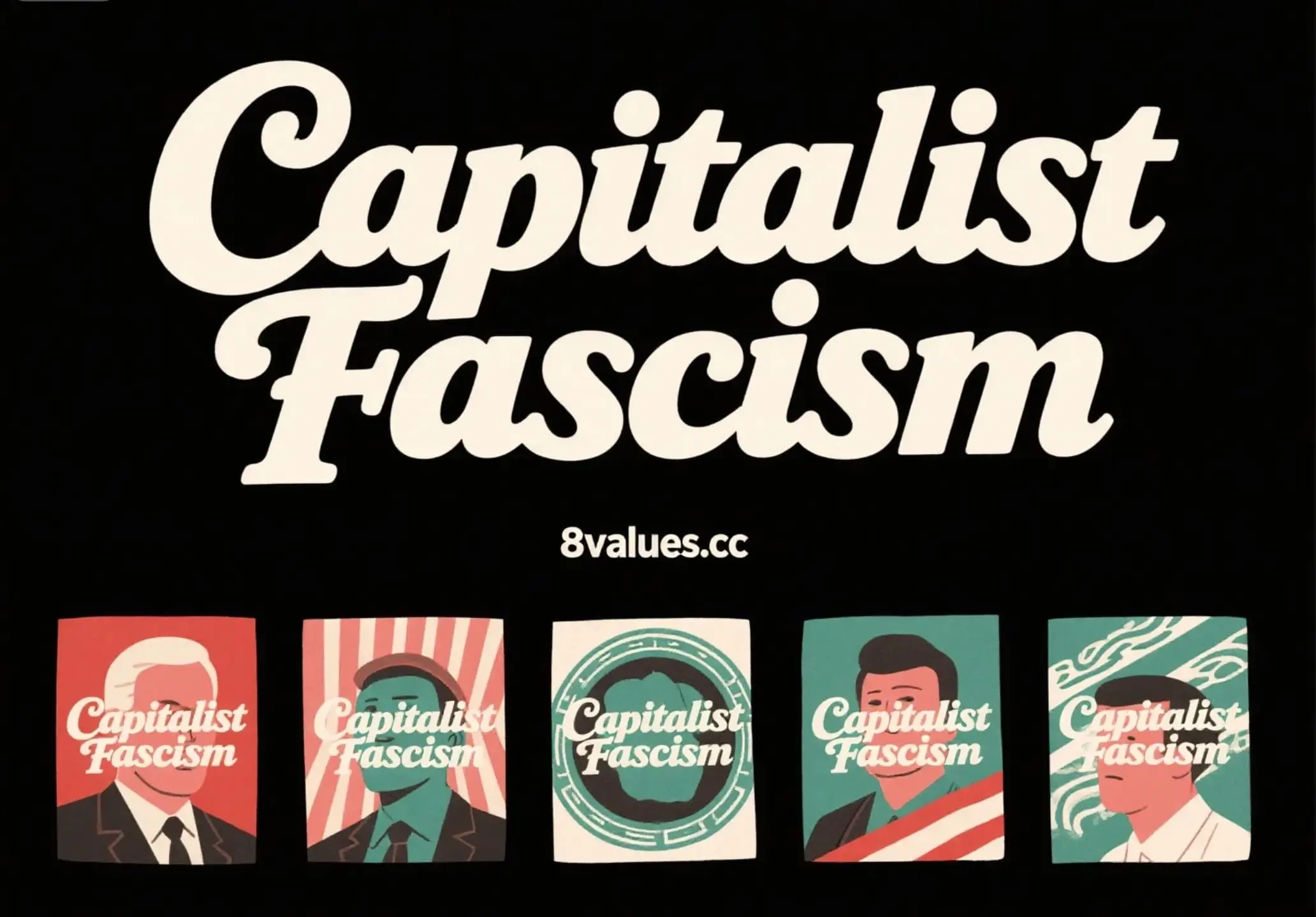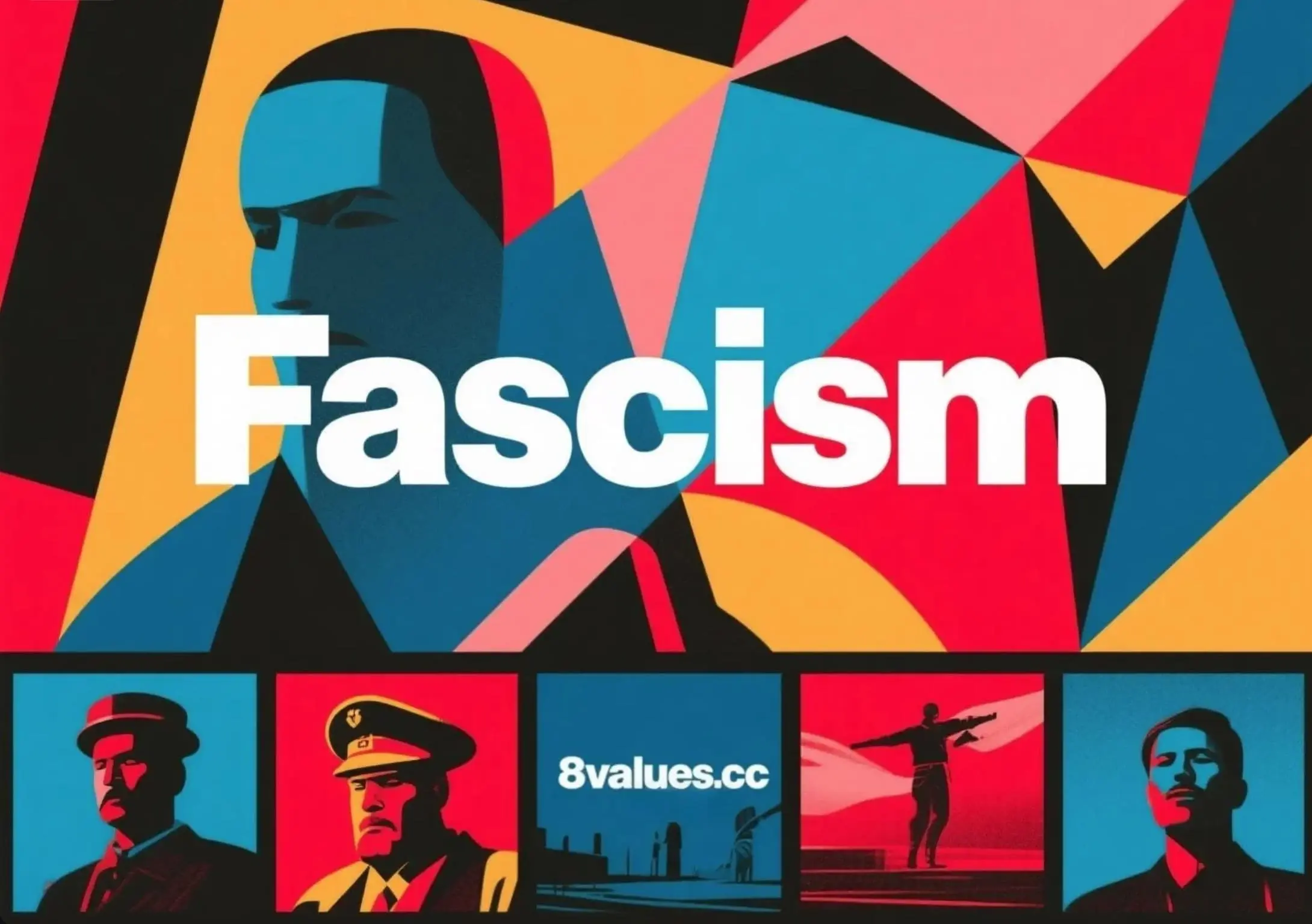Minarchism: The Boundaries of the Night Watch State and the Core Controversy of Libertarianism
Minarchism is a political philosophy that advocates the minimization of government functions. It strictly limits the role of the state to "night-watchman state" functions such as national defense, police and judicial systems to maximize the protection of individual freedoms and the free market.
Minarchism is an important branch of Libertarianism , which advocates limiting the size and functions of government to the minimum scope and only performing the core functions necessary to protect individual freedoms and basic rights. This philosophy emphasizes individual freedom, free markets, and strict limits on government intervention. Minarchists believe that the existence of government is a necessary evil, but its power must be strictly limited to avoid infringing on individual freedoms. Want to know your political leanings? Try the 8 Values Politics Quiz .
The definition and etymology of Minarchism
Minarchism , sometimes called minimal statism or minimal government , is a political philosophy that advocates that the role of the state should be minimized in a free society.
The term itself is a portmanteau of "minimum" (minimum) and the Greek root "-archy" (power, method of governing), meaning "the least necessary government." The term was originally coined by anarchist philosopher Samuel Edward Konkin III in 1971/1980.
The core belief of small government is that the only legitimate role of the state is to protect individuals from harm and ensure their safety. This minimal state form is often called a night- watchman state .
Core functions of the Night-watchman state
The Night Watchman State model is the standard model of small government, which limits government functions to the absolute minimum necessary. The only role of government is to ensure that every citizen adheres to the principle of non-aggression through the military, police and courts to protect them from aggression, theft, breach of contract and fraud.
Small governmentists believe that the functions of government should mainly focus on the following three aspects, which correspond to the civil governance requirements put forward by the classical liberal philosopher John Locke:
- Judicial : Provides impartial arbiters and courts to adjudicate disputes. Locke believed that people tend to be biased when dealing with their own cases and need an impartial third party to adjudicate.
- Legislative system : the establishment of a generally known and agreed-upon body of law (a generally known and agreed-upon body of law) as a common standard for judging right and wrong and resolving all disputes.
- Executive/Military : Provides police and military forces to effectively enforce orders and protect individuals from external threats and internal aggression.
Minimal government is thus limited to the narrow functions of protecting individuals from violence, theft, and fraud, and enforcing contracts.
The philosophical cornerstone and advocate of small government
Miniarchism is a theoretical response to anarchism, trying to find a balance between maintaining social order and personal freedom. Many microstates see themselves as part of libertarianism and believe they inherit the tradition of classical liberalism.
Robert Nozick and the Minimal State
Robert Nozick popularized the concept by providing an important philosophical defense of the night watchman state in his landmark book Anarchy, State, and Utopia (1974).
Nozick justified a minimal state whose functions were limited to protecting individuals from violence, theft, fraud, and enforcing contracts. Any further expansion of the state would infringe upon the rights of individuals and would therefore be unjust.
His conclusion has two important implications: the government must not use its coercive means to force some citizens to assist other citizens (i.e., against the welfare state), nor can it prohibit citizens' actions for their own benefit or to protect services (i.e., against paternalism). Nozick believes that a minimal state can form naturally, for example, through a private protection agency in a free market anarchy and gradually form a dominant protection agency through the market process, which is ultimately equivalent to a minimal state without infringing on anyone's rights in the process.
Other important figures and theories
- Ayn Rand : Her Objectivism philosophy also supported the Night's Watch nation. She believes that government is necessary and its job is to provide retaliatory force, including police, military and courts, to protect the rights of all people. Rand emphasized that the power of government comes from the trust of citizens.
- Classical Liberalism : Small governmentists usually consider themselves heirs to the classical liberal tradition.
- Utilitarianism and the Austrian School of Economics : Well-known small governmentists such as FA Hayek, Ludwig von Mises, and Milton Friedman tend to use utilitarianism and economic discourse to support the efficiency and productivity of minimal government, such as the Austrian School of Economics' contributions to the free market.
The economic proposition of Minarchism
Microarchism is one of the two main streams of right-wing libertarianism (the other is anarcho-capitalism). The core of its economic proposition is:
- Laissez-faire (Laissez-faire) economy : Small governmentism supports strong private property rights and free market capitalism, believing that market mechanisms should dominate economic activities. Government should not interfere with prices, wages, production or transactions. They believe that this standby economic approach will lead to greater economic prosperity.
- Opposition to Wealth Redistribution and Welfare : Microstates are often strongly opposed to government efforts to redistribute wealth, provide social welfare services, or provide corporate subsidies in the economy. Because they believe the government has no right to force citizens to help other citizens.
- Decentralization Tendency : Small governmentists tend to limit the expansion of government power to small jurisdictions (such as cities and towns) rather than larger jurisdictions (such as states and countries) because individuals have more freedom of choice and movement within small jurisdictions.
If you are interested in the economic dimension of the political spectrum, you can refer to the LeftValues left-wing political values test and the RightValues right-wing political spectrum test to explore your leanings on economic freedom and intervention.
The essential differences and controversies between Anarchism and Anarchism
The line between miniarchism and anarchism is a long-standing point of contention within libertarianism.
Core points of disagreement: state legitimacy and monopoly
Anarchism advocates the total abolition of the state and all forms of hierarchical authority. Small governmentism, on the other hand, believes that a limited government is necessary to prevent society from falling into chaos and ensure the stable operation of law and order.
The main disagreement between the two is: Is the state a legitimate means of achieving civil governance?
- The view of small government : A minimal state is necessary to maintain social order, ensure the execution of contracts, and protect individual rights. It is inevitable. Rather than moving toward anarchy (Statelessness), it is better to establish a small state that protects rights.
- Anarchist perspective : The state is an organization that forcibly maintains a monopoly of civil governance within an area. Such a monopoly, even a minimal one, constitutes an aggression against individuals and their property and is therefore inherently illegal. Anarcho-capitalists generally believe that the state, no matter how small, is an obstacle to freedom because it can still impose taxes or imprison citizens for long periods of time.
A rebuttal to Locke's argument
Locke, a classical liberal, believed that the impartial judges, known laws, and effective law enforcement required for civil governance could only be achieved through the state. But anarchists counter that these reasons are actually strong arguments for statelessness . For example:
- Impartial judge : As a monopoly government, the state is bound to act as its own judge when it comes to itself and cannot remain neutral. In contrast, non-monopoly civil governance allows for the existence of multiple third-party institutions to adjudicate disputes.
- Universal Law : The state, as a monopoly, has no incentive to keep the law within a knowable range and instead keeps creating more and more laws. A society without monopoly has a strong incentive to establish unified and known rules (such as the historical "Law Merchant").
- Effective law enforcement : Monopoly law enforcement will inevitably lead to abuse of power and lack of restraint. Historical examples exist of stateless organizations engaged in defense and law enforcement, such as private security companies and citizen militias.
Corruption and expansion risks
Small governmentists argue that privatized law enforcement and court systems may favor those who pay more. However, anarchocapitalists counter that government monopolies are more likely to breed corruption and inefficiency.
One of the biggest challenges facing small government is ensuring that the state does not expand. Many critics believe that the state is essentially an "insatiable beast" and that political incentives are always geared toward the growth of power, so the minimal state model is ultimately destined to be a "myth" or "utopia." Historically, the early constitutional system of the United States was considered ultimately unable to restrain the expansion of government.
Practice and Reflection on Minarchism
Although small government is difficult to fully realize in reality, its concept has had a significant impact in political practice.
Historically, 19th-century Britain has been described by historian Charles Townshend as an example of a "night watchman state." At the end of the 20th century, the reforms implemented by the Reagan administration in the United States and the Thatcher administration in the United Kingdom also reflected the concept of small government, such as cutting government spending, reducing taxes, and deregulating the market.
However, the small government model also faces many criticisms, including the widening gap between rich and poor, insufficient provision of public services (such as education and health care), and its inability to effectively respond to complex modern problems (such as environmental problems).
All in all, Minarchism, as an important political trend, provides a solution that seeks a balance between anarchy and big government. It insists on embracing freedom to the maximum extent on the premise of protecting individual rights and maintaining basic social order, and provides a theoretical basis for those who want to restrain state power but are unwilling to completely abandon state organization.
You can use tools like the 9Axes Political Ideology Test to further determine your specific ideological positioning on state power, economic freedom, and personal freedom. For more information please visit our official blog .
